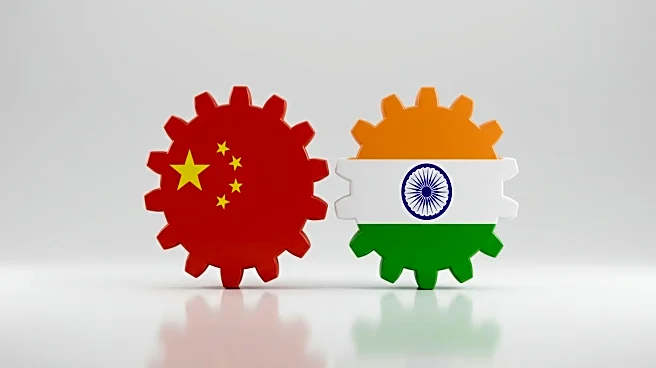What's Happening?
China has decided to ease export restrictions to India, including on fertilizers and rare earths. Despite this development, a report highlights concerns over India's trade deficit with China, which has reached USD 100 billion. The report, from the Global Trade Research Initiative (GTRI), suggests that while China's gesture is beneficial, India should prioritize self-reliance. This involves enhancing domestic manufacturing capabilities and reducing dependence on imports to engage with China on more equal terms.
Why It's Important?
The easing of export curbs by China could provide short-term relief for India, particularly in sectors reliant on Chinese imports. However, the significant trade deficit underscores the need for India to strengthen its domestic industries. By focusing on self-reliance, India can mitigate external pressures and foster economic resilience. This shift could lead to increased investment in local manufacturing and innovation, potentially boosting employment and economic growth. Stakeholders in Indian industry and government may need to collaborate to implement strategies that reduce import dependency.
What's Next?
India is likely to continue exploring ways to bolster its domestic manufacturing sector. This may involve policy reforms, incentives for local businesses, and investments in technology and infrastructure. The government might also engage in diplomatic discussions with China to address trade imbalances. As India works towards self-reliance, businesses and policymakers will need to adapt to changing trade dynamics and explore new markets to diversify economic partnerships.
Beyond the Headlines
The emphasis on self-reliance reflects broader global trends where countries are reassessing their dependence on international supply chains. This move could have long-term implications for India's economic strategy, potentially leading to a more sustainable and independent economic model. It also highlights the geopolitical aspect of trade relations, where economic policies are increasingly influenced by strategic considerations.









